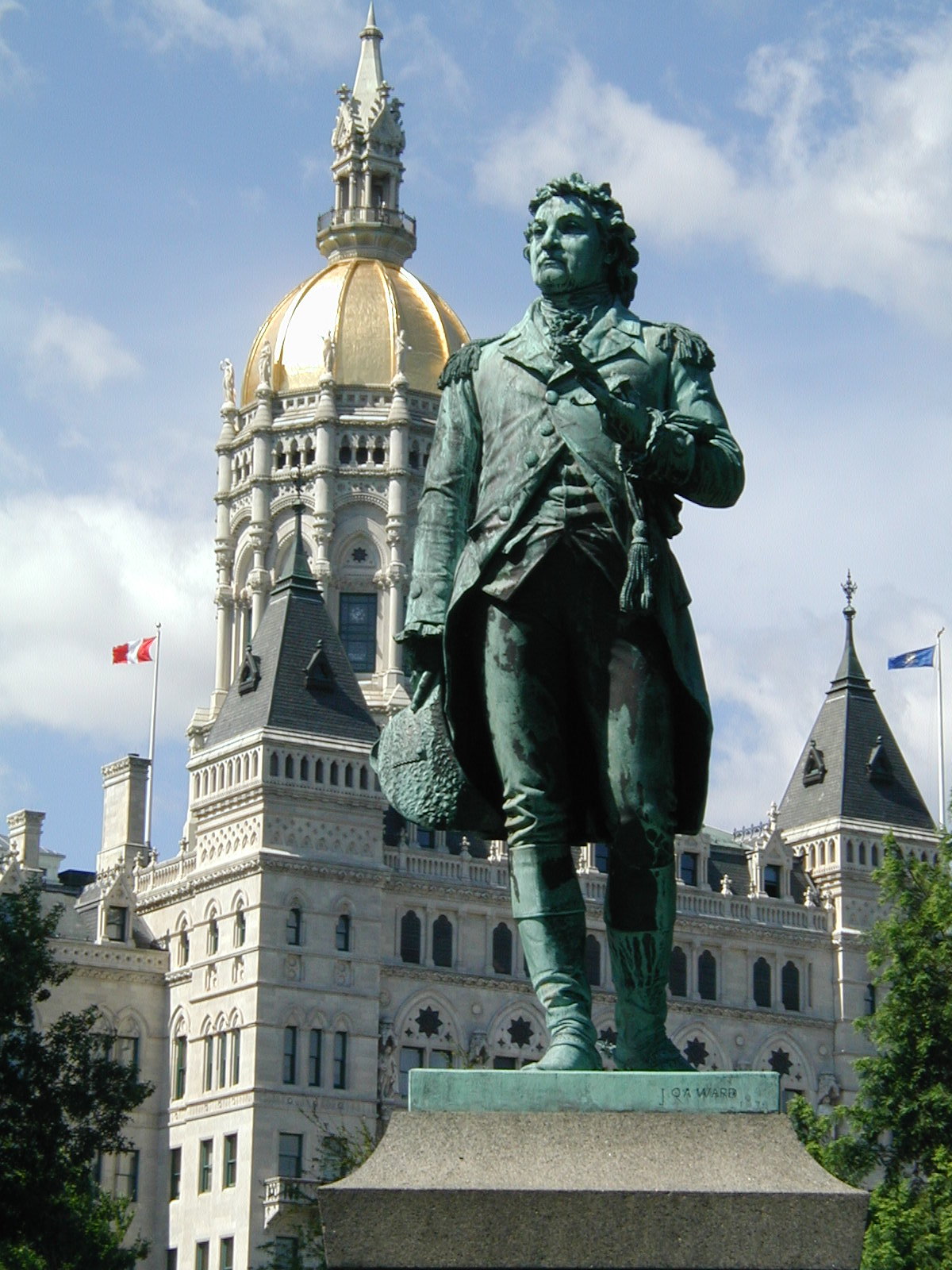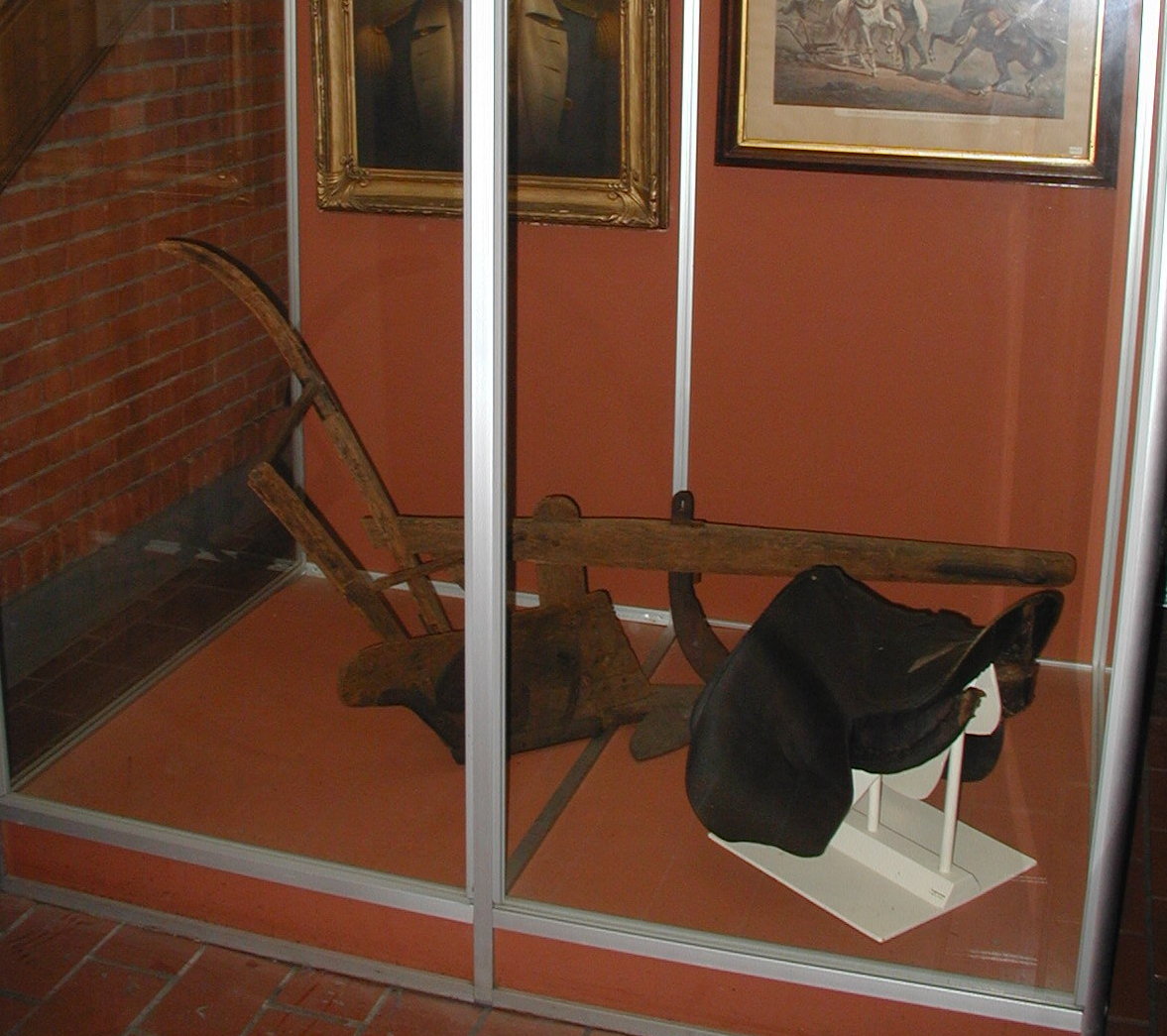|
--- General Israel Putnam at the Battle of Bunker Hill, 1775
|
|
|
Statue of Israel Putnam, Bushnell Park, Hartford, CT |
|
|
One of the colonies' veteran soldiers when the war began. Born in Massachusetts, he lived most of his life in Connecticut as a farmer. He joined Rogers' Rangers in 1755 during the Seven Years' War and eventually rose to the rank of lieutenant colonel of militia. His service against the Indians was harrowing, to say the least: in 1758, he was captured and tied to a stake and was saved from roasting alive only by the last-minute intervention of a French officer. He was exchanged and then sailed with an ill-fated British mission against Havana. The entire force was shipwrecked off Cuba, and Putnam was one of the few survivors. By the eve of the Revolution he had become a relatively prosperous farmer and tavern keeper with more than a local reputation for his previous exploits. He early joined the Sons of Liberty and supported the growing rebellion in New England. |
|
|
Putnam's Plow and Saddle. On display in the Entrance Hall of the Hartford Armory. |
Putnam Leaves His Plow For Lexington "On Thursday morning, April 20th 1775, Putnam and his son Daniel, who was then fifteen years of age, had gone into the field near the tavern at Brooklyn Green to plow. They were busy at work when about eight o'clock a messenger rode into the village in hot haste, with a dispatch for Daniel Tyler, Jr. It was from the town clerk of Worchester, Massactusetts, who had forwarded a copy of a letter which he had received from the Committee of Safety at Watertown, dated "Wednesday morning, Near 10 o'clock, April 19, 1775," announcing that the British had fired on the militia at Lexington, had "killed six men and wounded four others," and were on their march into the country. Young Tyler hurried with the news to his father-in-law in the field. In instant response to the alarm, Putnam - so wrote his son Daniel in after years - "loitered not but left me, the driver of his team, to unyoke it in the furrow, and not many days after to follow him to camp." |
|
Without changing his working clothers, the energetic patriot mounted a horse at the stable that he might himself spread the alarming tidings and also consult with the militia officers and the committees of the neighbouring towns of Windam County. He hastened to the home of Governor Jonathan Trumbull at Lebanon, and received orders from him to go to Boston. " --- Israel Putnam, Pioneer, Ranger, and Major-General by William Farrand Livingston, The Knickerbocker Press, 1901.
|
|
|
After Lexington and Concord, Putnam hastened to Boston and became colonel of a Connecticut regiment and brigadier of Connecticut militia. He was one of the two principal commanders at the battle of Bunker Hill and Breed's Hill, where his personal courage showed to good advantage. Congress appointed him as one of the original major generals of the Continental Army within days of the battle. When Washington moved the army to New York, Putnam was given command at Long Island. He had been reduced to recruiting and a minor command in Connecticut when he was felled by a paralytic stroke in 1779. |
|
|
Historical TidBit: Pomfret, CT, is probably best known for the wolf's den where General Isreal Putnam killed the last wolf in Connecticut in the winter of 1742-43. Wolf Den is now maintained as a state park and has been placed on the National Register of Historic Places by the National Park Service. |
|
Settings Menu



